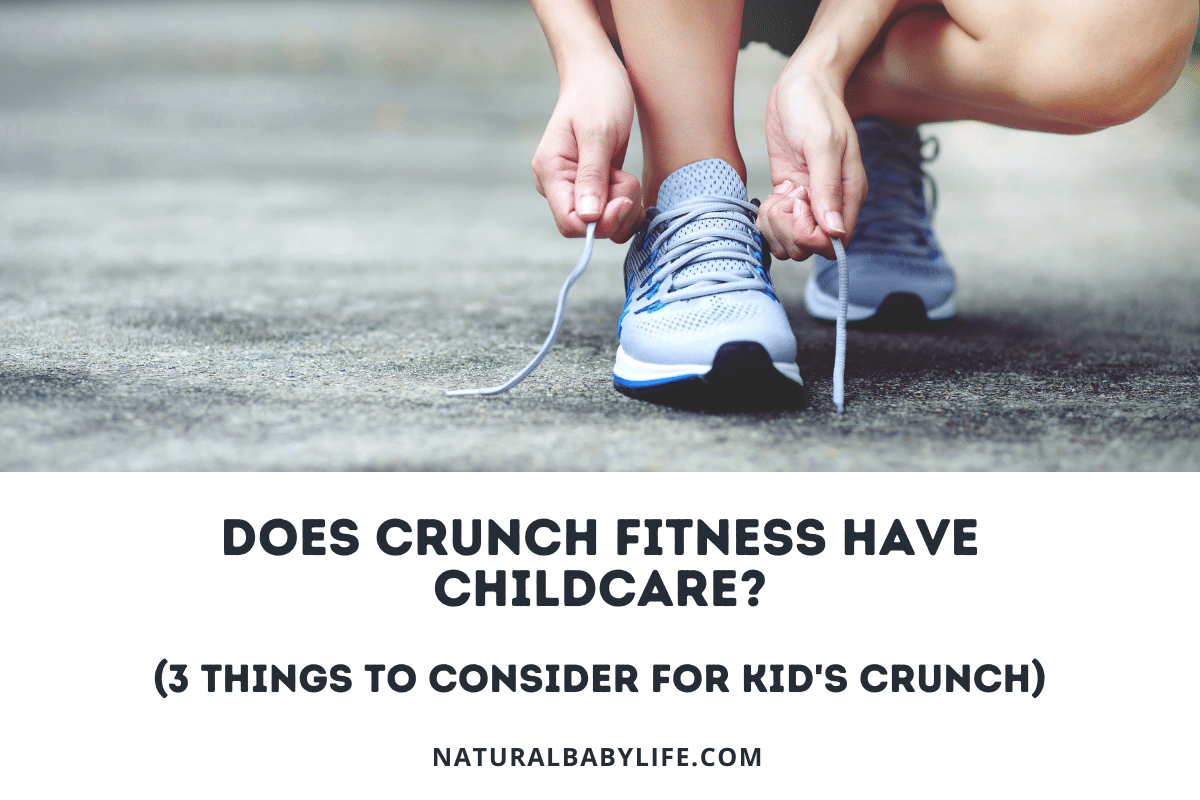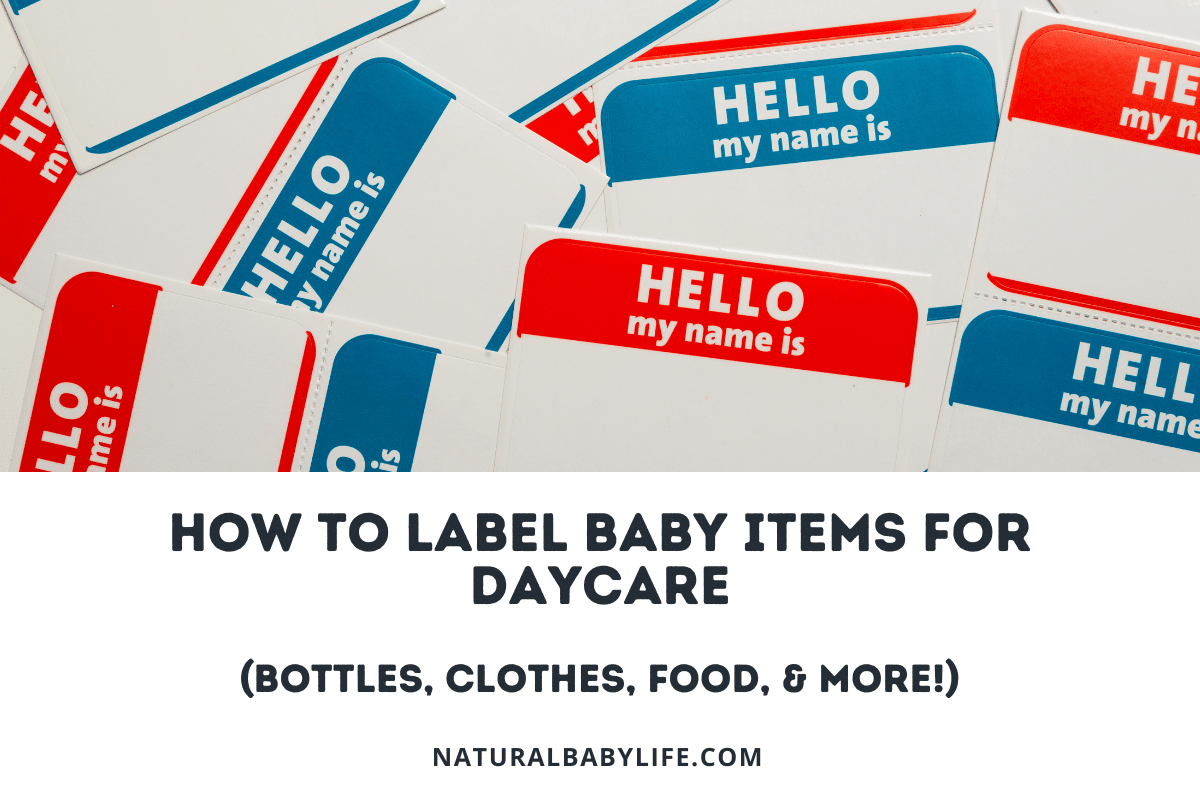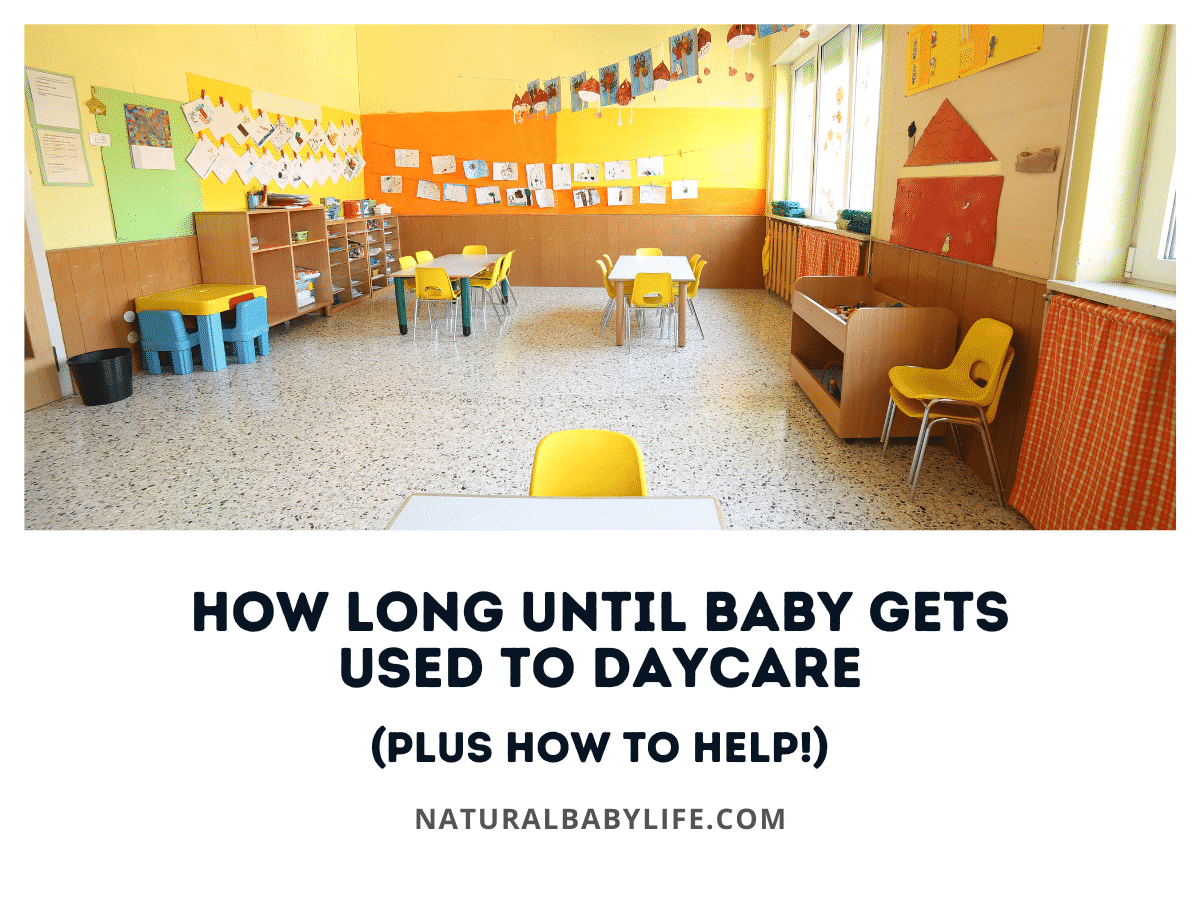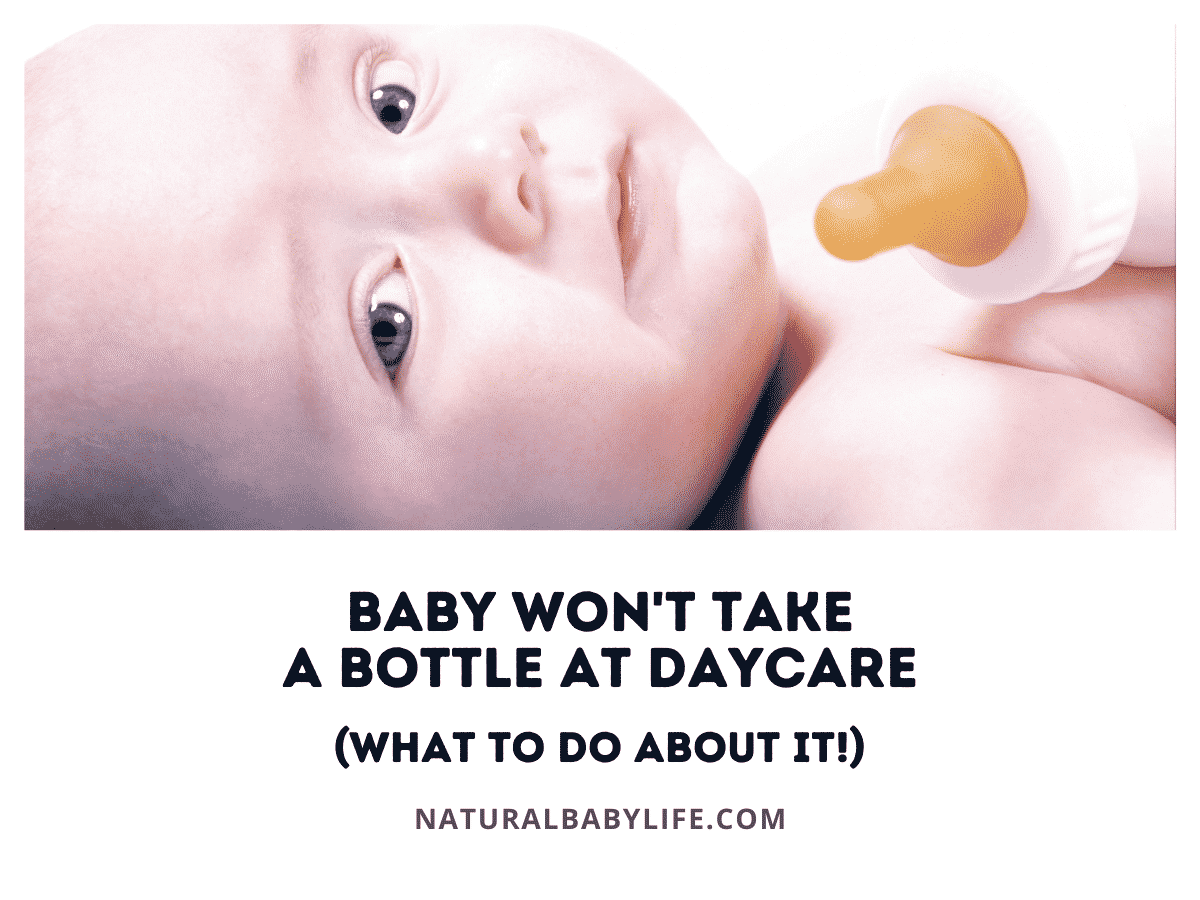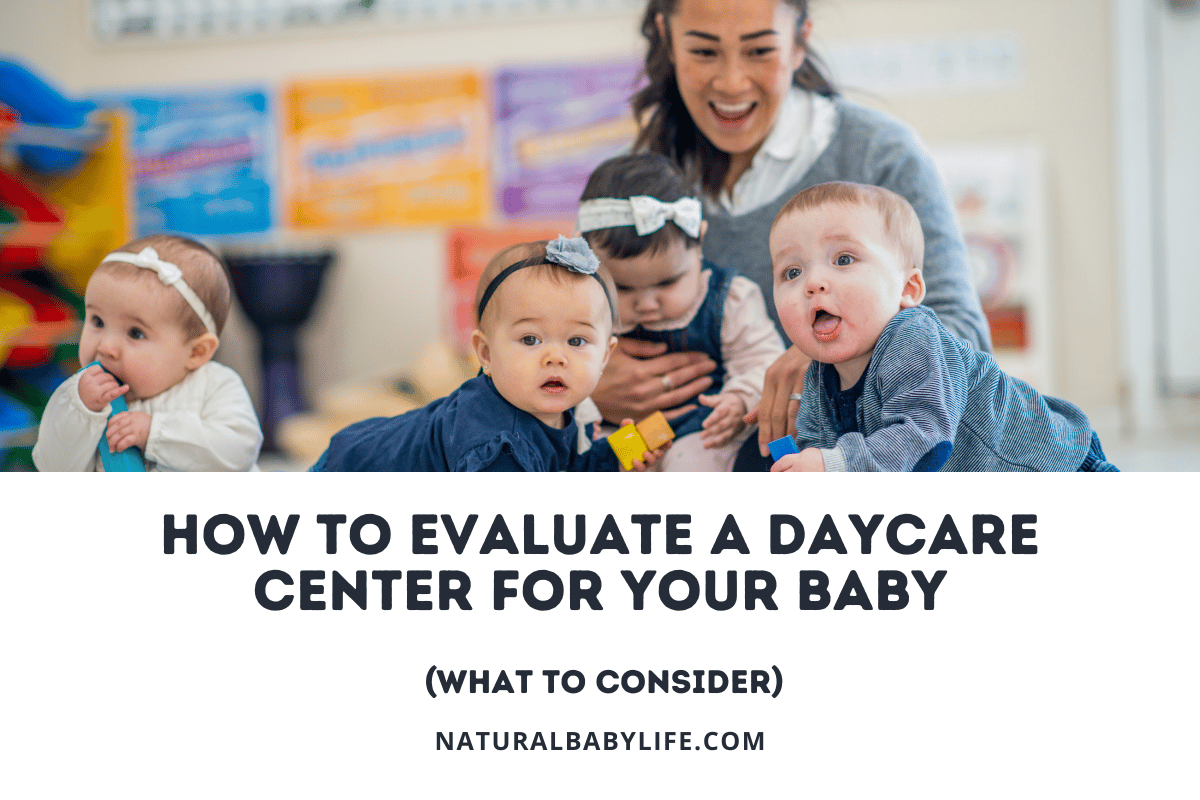Potty training your little one takes a lot of patience and consistency. Developing a potty training plan that works can be particularly difficult for children in daycare. What if your daycare isn’t helping with potty training?
It is standard practice for daycare providers to assist with potty training when a child becomes developmentally ready, typically between 18 months and 4 years of age. Daycares can be expected to adhere to your child’s bathroom schedule, offer support and encouragement, and update parents on day-to-day bathroom experiences.
Keep reading to learn more about how daycare can be involved in your child’s potty training plan, common policies, and what to do when your daycare is not helping with potty training.
Table of Contents
Does daycare help with potty training?
Whether you’ve done all of your research or you don’t know where to start, your daycare provider should work with you to establish a plan that can be implemented at home and daycare.
Along with creating a potty training plan, you can expect your daycare to:
- Offer education and guidance
- Provide encouragement and support
- Maintain clean facilities and assist with hygiene
- Communicate success and setbacks to parents
Though daycare should assist with potty training, methods that involve lengthy routines or your intuition may not be realistic for children in daycare; however, daycares should do their best to respect your values and needs when helping to potty train your child.
Many daycares do not have age requirements for potty training; however, some programs require children to be potty trained by age three or four. Always review a daycare’s potty training policy before enrolling your child.
When to potty train
Most children are potty trained between 18 months and 4 years of age. This range is broad because the decision to potty train is typically based on a child’s readiness, not their age.
Here are some cues that your little one is ready to start potty training:
- They can communicate their need to go potty.
- They express interest in the toilet.
- They can pull their clothes up and down.
- They can imitate their parents’ behavior.
- They can walk and sit down.
- They demonstrate independence.
- They put things where they belong.
18 months
Before 18 months of age, children have little control over their bladder and bowel movements.
This makes 18 months the youngest age that it’s considered appropriate to begin potty training.
At this age, daycare providers may expect your little one to be introduced to the concept of using the toilet.
2 years
At this age, your child may be able to listen to their body’s signals, communicate their needs, pull their pants up and down, and begin managing their own hygiene (e.g. wiping, washing hands).
Though many children begin potty training at two, not all children are ready at this age. Daycares will support your child whether they are still in diapers, using the potty independently, or anywhere in between.
3 years
According to the American Family Physician, about 40 to 60% of toddlers are toilet trained by age three.
Though many children are ready to start potty training well before three years of age, it is a long process for many children.
Though it is common to still be potty training at three years old, parents may experience difficulties finding “potty training friendly” programs at this age.
4 years
If a child is not potty trained at four years old, according to the AAP, daycare providers sometimes recommend they be evaluated by a pediatrician.
It is common for preschools and some daycares to request that 4-year-olds be potty trained before enrolling.
They may also provide additional guidance to parents if additional education is needed.
Daycare potty training policy
Potty training policies will vary from daycare to daycare.
Though there is no standard protocol the AAP suggests many guidelines, including the following:
- Daycare providers should create a positive, non-threatening experience, basing potty training on a child’s readiness.
- When potty training, daycare providers should seek to foster self-esteem and independence.
- When used, diapers should be checked every hour and changed immediately if soiled.
- Daycares should discuss potty training with all parents before enrollment. Though providers may have preferred methods, they should be sensitive to each family’s needs and values.
- Potty training in the daycare should complement a child’s potty training experience at home.
- Records of a child’s progress at daycare should be shared and discussed with the parents.
- Changing areas and toilets should be safe and clean.
Here are some specific policies noted by popular daycares:
Potty Training Policies by Daycare Provider
| Daycare | Policy |
|---|---|
| Headstart | They believe if a child is ready, potty training should only take a few weeks. They will commit to up to one month of potty training but will retry at a later date if not successful. |
| La Petite Academy | Children must wear diapers or pull-ups until they are fully potty trained. For a “trial time,” they may be asked to wear plastic pants over their underwear. |
| Kiddie Academy | They require parents to fill out a form regarding their child's potty-training experience and routine but never force children to use the toilet. |
| The Goddard School | Their “Get Set” program is designed to help facilitate potty training. During this time, they request children use velcro-sided pull-ups instead of diapers, then eventually, underwear. They expect a child to keep many extra undergarments, a change of clothes, and a separate pair of shoes at the school in case of an accident. |
Though none of the above daycares specify an age at which they expect children to be potty trained, many preschools make potty training a requirement.
Will daycare help potty train
Daycare providers will help with potty training when a child is developmentally ready and interested in using the toilet.
Daycares will work with parents to help create a plan to maintain consistency when potty training at home and daycare.
Though some families may practice a version of potty training, known as elimination communication, with infants as young as one month, it is uncommon for daycares to assist with potty training until a child is 18 months of age.
Potty training a toddler in daycare
There are additional factors to consider when establishing a method and routine for potty training a child that’s in daycare.
Though you can expect daycare workers to provide support and guidance when your child is potty training, their time and resources may be limited.
Method
Here are some common methods listed by Healthline, including when to start them, how they work, and whether they are appropriate for a daycare setting.
| Method | Age | Procedure | Daycare Friendly? |
|---|---|---|---|
| Child-Oriented Potty Training | 2-3 years | The child learns how and when to use the toilet, but remains in diapers. They may be offered the toilet, but are never pushed to use it. Eventually, the child will become interested in using the toilet. They will communicate this to their caregivers at their own pace. | Yes. Your child will start using the toilet at daycare when they communicate that they need to go. There is no pressure for your child to use the toilet, and there is no increased risk of accidents. |
| Parent-Led Potty Training | 18 months to 4 years | A schedule is set which dictates when the child should try to potty in the toilet, for instance, every two to three hours. Eventually, the child will recognize their body’s signals for when they need to potty, and they will request to use the restroom when needed. | Yes. It is common for daycares to adhere to children’s potty training schedules. Because it is regimented and doesn’t rely on parent intuition or the child’s comfort level, this method can easily be adopted by any caregiver. |
| 3-Day Potty Training | 22+ months | The child starts exclusively wearing big kid underwear on day one. Parents explain how and when to use the toilet. The child will be incentivized to use the toilet to keep their underwear dry. Parents use accidents as teachable moments. | Sometimes. Per its name, this method can work quickly; however, if you intend on potty training your child over the long weekend, sending them back to daycare in underwear can be risky (and messy) if they are not quite ready. |
| Elimination Communication | 1+ month | This isn’t always referred to as potty training because it solely relies on caregivers recognizing cues that their child needs to potty. Before 18 months, children have very little control over their bladder and bowels and cannot be trained to use the potty independently. This method is used for families that want to avoid diaper usage. It also familiarizes the child with the toilet at a young age. | No. Since daycare workers are looking after many children at once, they cannot be constantly watching for cues that an infant needs to potty. Especially since children aren’t developmentally ready to potty train until at least 18 months, daycares will not suggest this method. |
Rewards
Rewards can help your little one get excited to use the potty; however, implementing a reward system while your child is in daycare can be tricky.
Though giving your little one candy after each potty may seem easy, doing this in a daycare setting may make the other children feel excluded, leading to jealousy and behavioral issues.
Here are some reward systems that can work for the home and daycare:
- Use a punch card – This can easily be used to track your child’s successful potties and can be “cashed in” for sweets or toys once they are home.
- Offer praise and reassurance – Though simple, praise can be the most effective incentive for children to use the toilet. Telling your child “Great job!” reinforces their behavior and boosts their confidence.
- Have fun with hand soap – Whether it’s colorful, shimmery, foamy, or bubbly, hand soap can be a lot of fun for little kids. Encouraging your little one to play with their hand soap, may help them want to use the toilet, and it has the added benefit of promoting good hygiene.
- Adopt your daycare’s reward system – Your daycare may have a reward system that they like implementing for their potty training toddlers. This may be candy, stickers, small toys, or a chart system. Whatever it is, maintaining consistency in the home as well as daycare will provide positive reinforcement.
Consistency
Consistency is key when potty training your toddler. Not maintaining consistency in your method, routine, and incentives can cause confusion and setbacks for your child.
Discuss potty training with your daycare providers before you settle on a method and routine. Your daycare should be able to work with you to create a plan that can help your child be successful at home and daycare.
Consider bypassing the potty training chairs and purchase a potty training seat for your home bathroom such as the Alayna Potty Training Seat with Ladder.
Many daycares use child-sized toilets or potty training seats and step stools to make cleanup more manageable. Keeping the experience about the same for your child, whether they are at home or daycare, will help them catch on more quickly.
Accidents
Accidents are bound to happen when potty training your little one.
Prepare for accidents by sending your child to daycare with:
- Fresh underwear
- A change of clothes
- A ziplock (or waterproof) bag for soiled clothes
- Emergency diapers or pull-ups
Talk to your daycare providers about how accidents are handled. Accidents should never be treated as punishable offenses.
What to do when daycare isn’t helping potty train
If your child’s daycare is not helping with their potty training, ask for their reasoning.
If you are disagreeing with your child’s daycare about their readiness to potty train, ask your pediatrician for a third opinion.
If you are not happy with your daycares provider’s service, look into other daycare options. If you feel like they are being neglectful, you can report the violation.
Daycare forcing potty-trained child to wear a diaper
If your daycare is having your potty-trained child still wear diapers, ask them if your child has had frequent accidents or any setbacks.
If so, take a little more time to develop your little one’s potty training skills, and when it’s time to try underwear again, make sure they are always prepared with a change of clothes.
If your child is not experiencing any setbacks, ask your daycare provider why they have been unable to meet your child’s bathroom needs and be clear about your expectations.
Daycare won’t help potty train an 18-month-old child
At 18 months old, your child may be showing signs that they are ready to start potty training.
If your daycare won’t help with their potty training, ask them for their reasoning. If they don’t think your child is ready, their reasoning may include:
- They are unable to communicate that they need to use the bathroom.
- They don’t tell you when their diaper is dirty.
- They are not interested in using the toilet.
- They don’t stay dry for more than a couple of hours.
- They are not mobile enough to get to the toilet.
If your daycare’s reluctance is solely based on your child’s age, explain why you think they are ready, how you’d like to start potty training, and how they can help.
Daycare requires child to be potty trained before ready
Unfortunately, some daycares and preschools require a child to be potty trained before they are ready.
Though this may inspire families to jumpstart the potty training process, potty training too early can lead to chronic bladder issues.
If your child cannot be accommodated, speak with your pediatrician. They may be able to help determine how to move forward.
Child won’t use the daycare potty – and they won’t make him
Daycare workers are expected to help facilitate potty training with encouragement and support; however, if a child is afraid to use their bathroom, they should never force them.
Creating negativity and shame around using the bathroom can cause major setbacks. If your child has difficulty using the daycare potty, try to pinpoint what causes their discomfort, and attempt to work through it at home.
You may also try going in early or staying a little late to personally help your child use the daycare potty.
The daycare won’t stick to our agreed-upon schedule
If you are using the parent-led potty training method, it is important to keep up with your child’s scheduled bathroom visits.
If your daycare agrees to your child’s schedule but is unable to maintain it, consider making permanent changes to the schedule or adopting another method, such as child-oriented potty training.
Always let your daycare provider know if you feel like they are falling short or not meeting expectations.

![Daycare Not Helping with Potty Training [Co-Training with Consistency]](https://naturalbabylife.com/wp-content/uploads/2021/05/daycare-not-helping-with-potty-training_featured.png)

